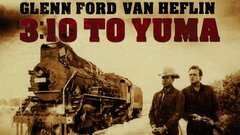Elmore Leonard

Writer
Birth Name: Elmore John Leonard Jr.
Birth Date: October 11, 1925
Death Date: August 20, 2013 — 87 years old
Birth Place: New Orleans, Louisiana
Arguably one of the most popular and prolific genre writers of the 20th century, Elmore Leonard brought street smarts, honesty, and an ear for genuine dialogue to the Western and crime novels for over five decades, including such works as Hombre (1967), The Big Bounce (1969), Glitz (1985), Get Shorty (1990), and Rum Punch (1992). Leonard's best work sparkled with a blend of dark humor and violence that elevated his characters - a roguish collection of criminals and cops whose moral codes often made them indistinguishable from each other - from their humble surroundings, usually his preferred settings of Detroit and Miami.
A cult favorite in the 1960s and 1970s, his work had been fodder for Hollywood since the 1950s, but was never properly translated until the 1990s when Barry Sonnenfeld adapted "Get Shorty" (1995). Quentin Tarantino followed with a compelling take on Rum Punch that the director renamed "Jackie Brown" (1997), while Steven Soderbergh helmed arguably the best of the bunch, "Out of Sight" (1998). Still producing one novel a year up until his 2013 death, while remaining a hot commodity in Hollywood, Leonard was among the greatest genre writers of his time.
Born on Oct. 11, 1925, in New Orleans, LA, to the son of a site locator for General Motors, Leonard spent his early years in transit as the company sent his father across the country for work. The family finally settled in Detroit, MI in 1934, where crime and baseball captured his interest as a boy, with the exploits of rural bank robbers Bonnie and Clyde and the Detroit Tigers' ascension to the 1934 World Series holding a particular fascination. The following year, he was captivated by literature after reading All Quiet on the Western Front (1929) and even staged an adaptation in his grade school classroom. These disparate sources became the major influences on his career for decades to follow. After graduating from the University of Detroit Jesuit High School in 1944, he joined the United States Navy, where he served with the Seabees in the South Pacific.
In 1946, he returned to the U.S. and enrolled at the University of Detroit as an English major. Prior to that, he had done very little writing, but as a student, Leonard began producing work on a regular basis, contributing stories to magazines and contests, and even managing to win a few.
Following his graduation in 1950 with degrees in English and philosophy, Leonard took a job as a copy boy with the Campbell-Ewald advertising agency. But the job took a back seat to his fiction writing, which he continued unabated, leading to his short story "Trail of the Apaches" being published in Arosy magazine in 1951. He sold 30 more short stories between 1951 and 1961, as well as four Western novels, beginning with The Bounty Hunters (1953). Two of his shorts stories, "Three-Ten to Yuma" (1953) and "The Captives" (1955), were turned into motion pictures in 1957; the former starring Glenn Ford and Van Heflin, while the latter arrived in theaters as "The Tall T" with Randolph Scott and Maureen O'Sullivan. His reputation as one of the finest writers of the genre was solidified in 1961 when his novel from that year, Hombre, was chosen as one of the best ever penned by the Western Writers of America. That same year, Leonard quit the advertising agency and began writing fulltime.
Unfortunately, the abundance of television Westerns put a dent in the genre's fiction market, leaving Leonard to put his fiction career on hold in order to support his wife and growing family. He took a job writing educational films for Encyclopedia Britannica and other corporations and began work on his first crime novel, The Big Bounce, which he completed in 1966. Meanwhile, Martin Ritt's adaptation of "Hombre" (1967) with Paul Newman became a hit at the box office and with critics. Next up was Robert Dozier's take on Bounce, Leonard's first contemporary crime novel, which had been floating around publishing houses and movie studios for years. However, "The Big Bounce" (1969), with Ryan O'Neal, was a flop with critics and audiences, while the book itself remained largely unrecognized until the late 1990s. But the success of "Hombre" was substantial enough to bring Leonard to the attention of Hollywood. In 1970, he began penning original screenplays, as well as adaptations of his own work. The most successful of his work was "Joe Kidd" (1972), a violent Western for Clint Eastwood, and "Mr. Majestyk" (1974), a crime picture with Charles Bronson as a Vietnam War vet pushed into violence by the Mob.
Despite his work for Hollywood, Leonard also continued to turn out novels during this period, most notably 52 Pick-Up (1974), which was twice made into a motion picture; first as "The Ambassador" (1984), with Robert Mitchum and Rock Hudson, and later, a critically acclaimed version (1986) by John Frankenheimer with Roy Scheider and Ann-Margret that used the book's original name.
By the mid-1980s, Leonard's body of work was receiving the widespread critical acclaim it deserved. His 1983 title, La Brava, about a former Secret Service agent who defends a faded movie star against thugs, won the 1984 Edgar Award for Best Novel. His next release, Glitz (1985), which pitted an Atlantic City cop against a vengeful rapist, was a bona fide hit, bringing Leonard his largest audience to date, as well as a cover story in Newsweek and a made-for-television movie on NBC a few years later.
From that point on, Leonard was a fixture of the bestseller list with books like Bandits (1987), Freaky Deaky (1988), Killshot (1989), Get Shorty (1990), and Rum Punch (1992), all of which became Hollywood fodder either released or wallowing in development.
As Leonard's popularity among readers continued to rise, so too did the number of film and television adaptations of his work. In addition to the aforementioned movies, there was "Stick" (1985), an underrated action vehicle for Burt Reynolds as director and star, with Leonard on board as co-writer; the film also featured the acting debut of famed stuntman, Dar Robinson, who fell off a 200-foot high balcony in one of his more daring stunts. Another of his lesser novels, "Cat Chaser" (1989), was turned into a rather mediocre film that was perhaps best known as the project which drove star Kelly McGillis to leave the acting business for nearly a decade, thanks to her clashes with director Abel Ferrara. Most delivered the violence and grit of Leonard's work, but missed the sly wit and depth of character that made his novels so popular.
All of that changed with "Get Shorty" (1995), Barry Sonnenfeld's witty, effortless cool adaptation of the 1990 novel about a hip loan shark (John Travolta), who tracks down a bottom-feeder (David Paymer) in debt to a Miami boss (Dennis Farina), only to find himself enamored with the movie business. A big hit at the box office, it proved to moviemakers that Leonard's style could make the transition to screen, and launched a flurry of adaptations for film and television.
Once again, however, most of the results missed the mark. A 1997 version of his comedy "Touch," with Skeet Ulrich as a reluctant faith healer, was largely dismissed. But director Quentin Tarantino emerged with his version of Rum Punch, "Jackie Brown" (1997), which starred revitalized blaxploitation queen Pam Grier as a financially struggling flight attendant who smuggles cash for a gunrunner (Samuel L. Jackson), only to find herself forced to turn on him after being arrested. While falling for her sympathetic bail bondsman (Robert Forster), she tries to play both sides in looking for a half-million dollar payday. Though not as quick-witted and breezy as "Get Shorty," Tarantino's take on Leonard was widely praised by critics on its way to earning several award nominations. Arguably one of the best translations of his work came courtesy of director Steven Soderbergh and writer Scott Frank, who brought "Out of Sight" (1998) to life on screen. The wry and stylish caper comedy about an escaped bank robber (George Clooney) who falls for the federal marshal (Jennifer Lopez) tasked with bringing him to justice was hailed by critics. Full of Leonard's choice dialogue, off-beat characters, and vintage violence, "Out of Sight" also featured sizzling onscreen chemistry between Clooney and Lopez, which added flavor to an already entertaining movie.
On the small screen, Leonard had modest successes with three made-for-cable movies based on his work, starting with "Last Stand at Saber River" (TNT, 1997), which starred Tom Selleck as an ex-Confederate soldier who battles Union soldiers over his Arizona homestead. Next was "Elmore Leonard's Gold Coast" (Showtime, 1997), a capable adaptation of one of Leonard's lesser works about a street-smart ex-con (David Caruso), who tries to help a mob boss widow (Marg Helgenberger) retain her $15 million inheritance despite not being allowed to carry on with another man - though she does - while contending with a half-crazed cowboy (Jeff Kober) looking to get the money for himself. Last up was Showtime's version of "Pronto" (1997), a middling crime comedy about a South Miami bookie (Peter Falk) who runs into trouble when he tries to retire with money he embezzled from a local mob boss (Walter Olkewicz). Leonard had a critical success with "Maximum Bob" (ABC, 1998), which starred Beau Bridges as an eccentric judge presiding over a colorful Florida town, based on his 1991 novel of the same name. Despite winning critical praise, the show failed to find an audience.
As he approached his eighth decade, Leonard showed no signs of slowing down, with novels coming every year without fail. Following Be Cool (1999), the long-awaited sequel to Get Shorty, he went outside his comfort zone for "Pagan Babies" (2000), which managed to find dark humor in the genocidal war between the Africa Hutu and Tutsi tribes. Meanwhile, Barry Levinson originally intended "Bandits" (2001) to be an adaptation of Leonard's novel of the same name, but later had the script rewritten to have virtually no resemblance to the source material. Back in the book world, he wrote one of his personal favorites, Tishomingo Blues, which he followed with his first children's novel, A Coyote in The House (2004). Hollywood tried a second time to make "The Big Bounce" (2004) into a hit, starring Owen Wilson and Morgan Freeman, but this time managed to produce an even bigger critical and financial disaster than the 1969 version. His work continued to find little traction on the small screen with "Karen Sisco" (ABC, 2003-04), a well-loved but little-seen television adaptation of Jennifer Lopez's character from "Out of Sight," starring Carla Gugino as the tough-but-sexy U.S. Marshal.
His childhood obsessions with historical crime figures were allowed to flourish in The Hot Kid (2005), which featured appearances by John Dillinger, Pretty Boy Floyd, Baby Face Nelson, and Bonnie and Clyde. Meanwhile, film adaptations continued to pop up with equal regularity; with Leonard serving as executive producer on "Be Cool" (2005), which brought Travolta's Chili Palmer to the music industry. Despite having a ready-made audience, the sequel paled in comparison to the original, which a vast majority of critics were happy to point out. But James Mangold's version of "3:10 to Yuma" (2007), with Russell Crowe as a notorious felon who is captured and transported to the famed Yuma prison by a rancher (Christian Bale) struggling to make ends meet, was a critical hit and earned two Oscar nominations. Imparting advice to writers learning their craft, he turned a popular 2001 New York Times essay into the non-fiction book, 10 Rules of Writing (2007), which cautioned scribes-to-be to "try to leave out the part that readers tend to skip," while offering up his biggest advice: "If it sounds like writing, I rewrite it." Meanwhile, he saw the troubled "Killshot" (2009), which had long been in development, go through a series of release dates before being consigned to straight-to-DVD status. Leonard finally had success on television with the series "Justified" (FX, 2010-15), which starred Timothy Olyphant as gun-slinging lawman Raylan Givens, who was featured in the novels Pronto and Riding the Rap (1995), as well as his short story, "Fire in the Hole" (2001). The show earned critical praise, as well as two Primetime Emmys. Still regarded as one of the most prolific writers of Post-War America, Leonard died peacefully at his home in Bloomfield Village, Michigan on August 20, 2013. He was 87.
Credits

Life of Crime
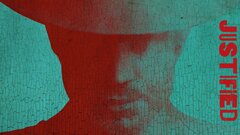
JustifiedStream

Be CoolStream

Be CoolStream
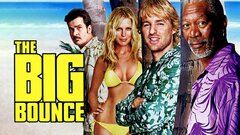
The Big BounceStream

The Daily Show With Jon StewartStream
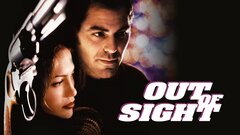
Out of SightStream
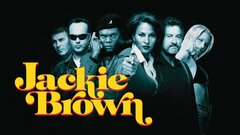
Jackie BrownStream

Jackie BrownStream
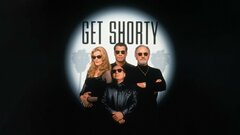
Get ShortyStream

52 Pick-Up

Mr. Majestyk
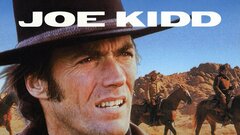
Joe KiddStream
